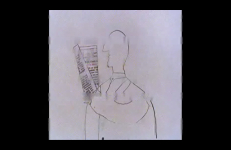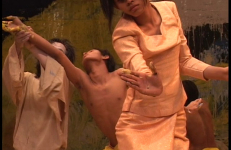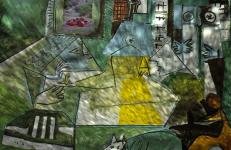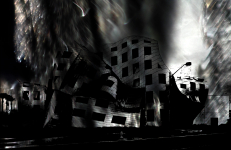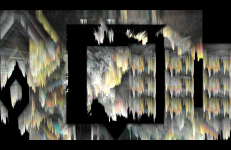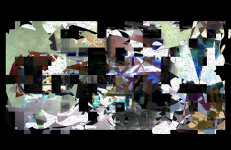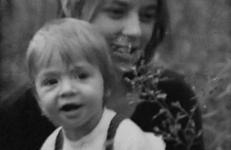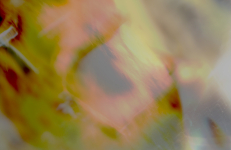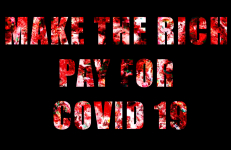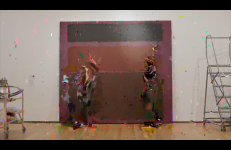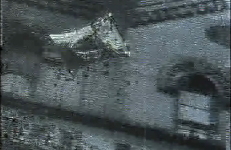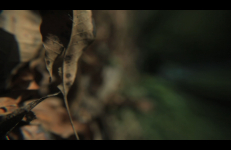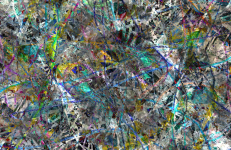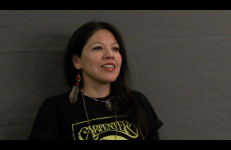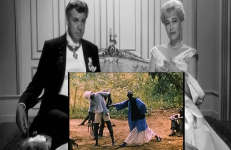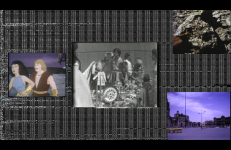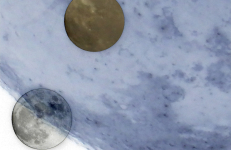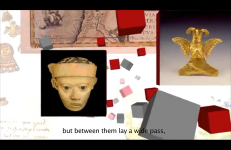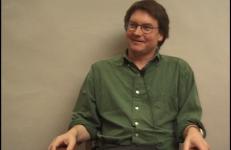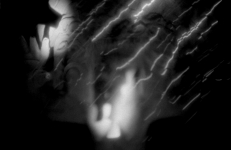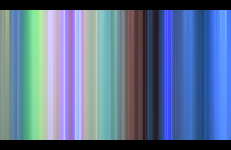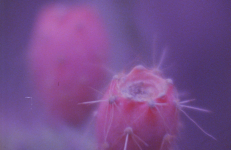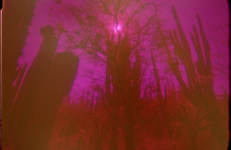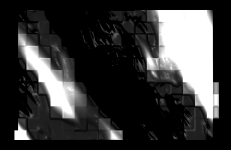Part of paraconsistent sequence series.
Art Collective
Cambodian Stories is Eiko & Koma's multi-disciplinary collaboration with Reyum Painting Collective, young painters who study and work at the Reyum Institute of Arts and Culture in Phnom Penh, Cambodia. In addition to Eiko & Koma, who perform alongside their Cambodian artist colleagues, the creative collaborators include Reyum Institute founder Daravuth Ly, who functions as dramaturg, and Cambodian-born music ethnologist Sam-Ang Sam.
A Kafkian vision of the New World. The arrival of Karl Rossman to the contemporary Babylon under the spell of the paranoid avant-garde. Kinetic coexistence of the archaic forms in dissolution.
The post-Platonic cave in whose interior the nuclear catastrophe to come is disseminated.
The Videofreex tape a group of young people working on a farm run by Chris Locke and his wife in Shandaken, NY. After learning how to take care of the chickens, they are taught how to kill and pluck one. Later they sit down for a communal dinner, and one of the group exclaims "Mmmmm, tastes good!"
An attempt to explore the metamorphic drama of expanding entomological entities. Sparkles of the screen-membrane in erosion.
This is Rothko's haunted painting and its circular detour. Bloody suppuration and enchanted absorption as an omen in times of pandemic vortex.
This is the nest image, the camouflage image, the vortex image, the haunt image, the net image, the drill image, the wire image, the cocoon image, the haunted image, the interconnected image, the pandemic image. The haunted space of the image.
Colectivo Los Ingrávidos (Tehuacán) is a Mexican film collective founded in 2012 to dismantle the commercial and corporate audiovisual grammar and its embedded ideology. The collective is inspired by the historical avant-gardes, and their commitment to using both form and content against alienating realities. Their methods combine digital and analog mediums, interventions on archival materials, mythology, agitprop, social protests, and documentary poetry.
Colonial Transfer vindicates the eidetic chasm that produced the arrival of television in the cinema as well as the absorption, transduction and digital expansion of television and historical film archives, all linked by the negentropic outburst of a source code in trance. This is the state of ever-expanding media landscape in the post-covid quarantine. Our state of space-time.
Comalli is the ancestral tool to cook our sacred food, our corn and tortillas. The circular tool that represents the dark side of the moon on which our earthly food burns. The cosmic dance of food and fire that nourishes our bodies. Part of the Lunar Films series.
Stephen Varble (1946-1984) staged gender-confounding costume performances on the streets of 1970s Manhattan, and he became infamous for his anti-commercial disruptions of galleries, banks, and boutiques. In 1978, he retreated from this public work to focus on the making of an epic, unfinished piece of video art, Journey to the Sun, until his death in the first days of 1984. Lush, ribald, and unorthodox, the video mixed non-narrative costume performances with a surrealist fable of a messianic martyr, the Warbler.
Here, a double morphology of conversion forces us to think about the trance of non-reconciliation, outburst and trance that go through the centuries of colonial violence until reaching us in the tension of an audiovisual disjunction: visible and enunciable. On the one hand the museum, habitat of barbarism, on the other hand the voice, place and body of the furious testimonial. Religious conversion that conveys communal violence. Archaeological conversion that imposes object immobility.
Matthew Coolidge is a founder and director of The Center for Land Use Interpretation (CLUI), an organization dedicated to raising awareness about how land is apportioned, used and perceived by its inhabitants. Through exhibitions, publications, and guided tours, Coolidge and the CLUI seek to foster and encourage a heightened sense of awareness of natural surroundings. In this interview, Coolidge defines a ‘land art spillover effect,’ in which the perceived significance of the landscape seems to increase the closer people get to a piece of environmental art.
This is the invocation to the gods, the incense to the gods. A kinetic dance to the gods. Behold the hieratic nature of Tonatiuh (The Sun) and the ferocity of Tlaltecuhtli (Goddess of the Earth) raising her agitation from the white smoke of the burned Copalli, Mesoamerican aromatic resin, sacred resin that tears celluloid with smoke, white hair, on the dark background of the world.
Coral is part of the harmonic and hyperkinetic colors film series. In this part the transcendental experience of his harmony leads us to an aesthetical suspension of content. Part of the Harmonic and Hyperkinetic Color Film Series.
Coyolxauhqui recasts the mythical dismemberment of the Aztec Moon goddess Coyolxauhqui by her brother Huitzilopochtli, the deity of war, the Sun and human sacrifice. The film is a poem of perception, one that unveils how contemporary Mexican femicide is linked to a patriarchal history with roots in deeper cultural constructs.
This is the howl, gaze, and agitation of the Coyote into the mountain. The Path of the Coyote.
This is the crude and unnatural state of civilization, an image not yet processed or refined that hides and displays in its intermittence all the crude violence of the anthropocenic industry. The raw and fossil image of the Capitalocene. Part of the Hauntology series.




